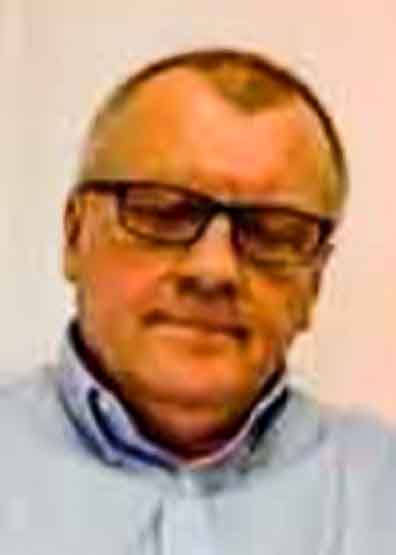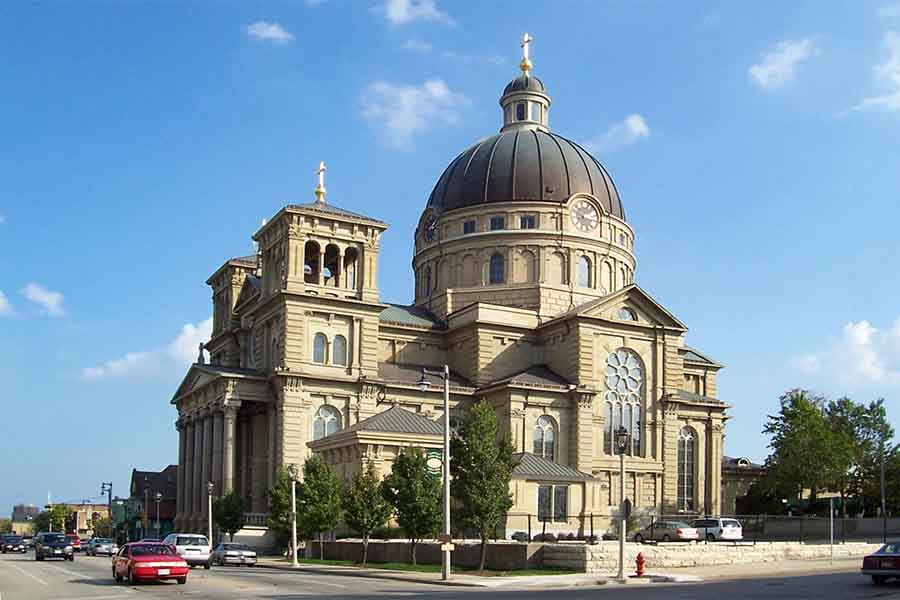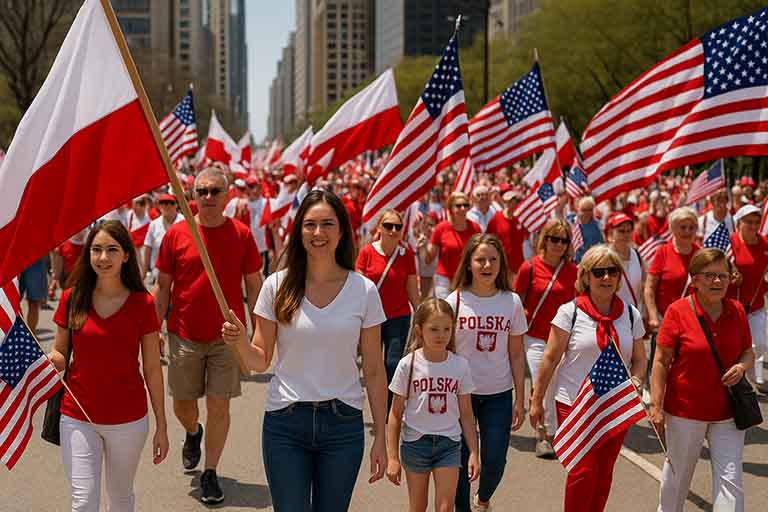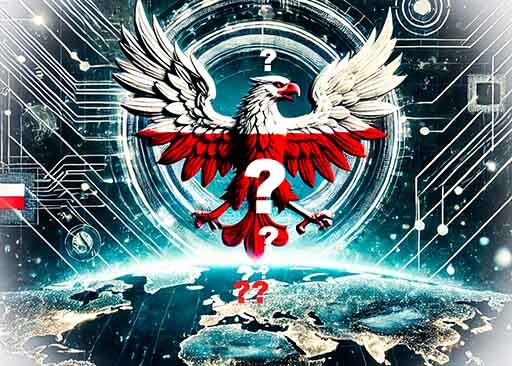Dr. Hab. Karol Polejowski – born 10.05.1969, graduate of the Faculty of History at the University of Gdańsk, academic lecturer. Author of monographs and scientific articles, including a dozen or so in English and French. Participant in over 50 scientific conferences, both domestic and foreign. Supervisor of master's and bachelor's theses. Organizer and co-organizer of scientific conferences, including international ones. Editor and co-editor of scientific books. Currently engaged in scientific work in the field of the Polish independence underground in northern Poland, the Polish Armed Forces in the West and the Polish People's Army in the fight against the underground after 1944. Museum worker since 2016 (Malbork Castle Museum, Museum of the Second World War in Gdańsk). Member of the editorial board of the journal "Wojna i Pamięć". Museum curator since 2020. Translator of historical French literature. Scholarship holder of the Lanckoroński Foundation in Rome.
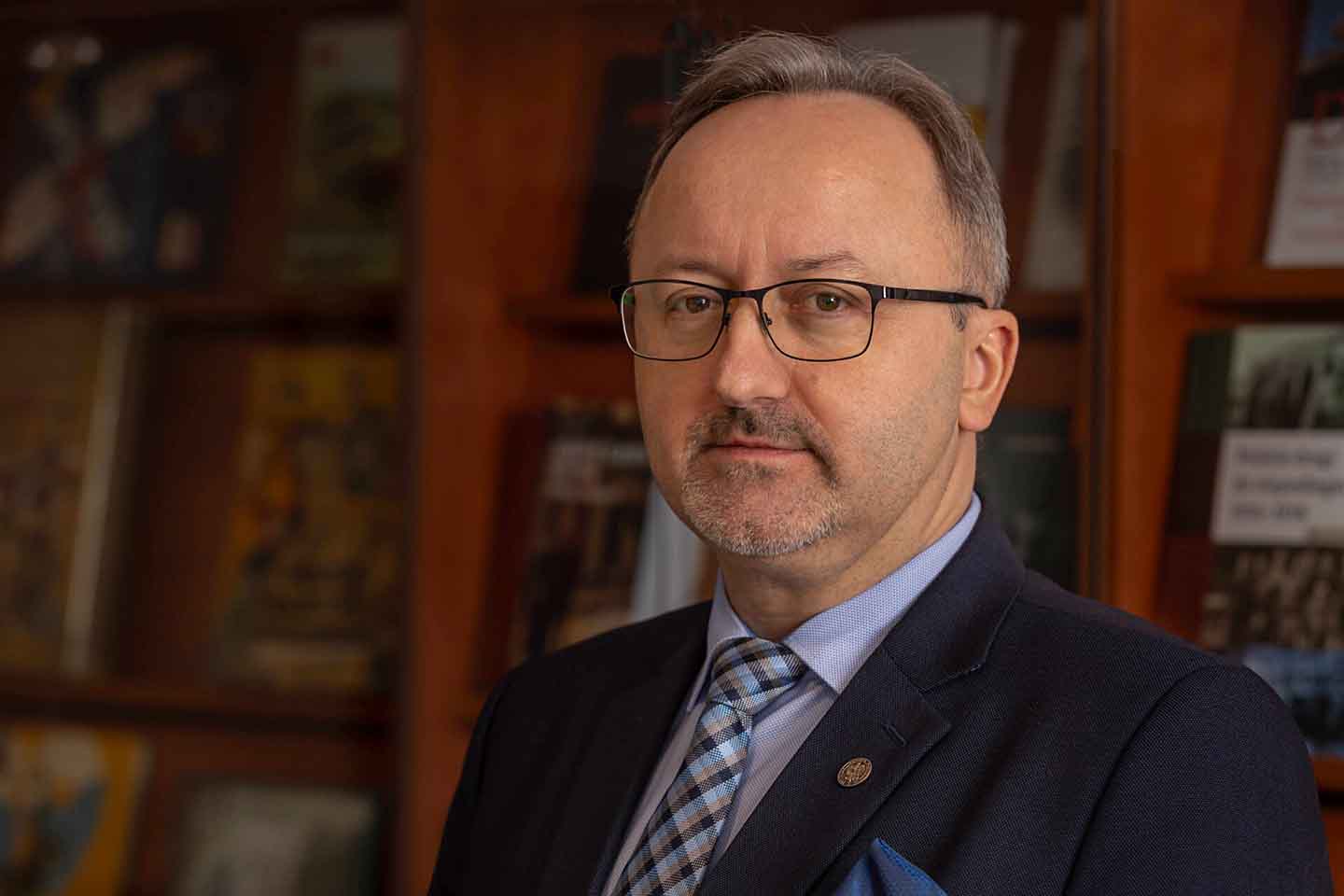
Dr Karol Polejowski, Vice President of the Institute of National Remembrance (Source: IPN)
Marek Bober talks to Dr. Karol Polejowski, vice-president of the Institute of National Remembrance:
Marek Bober: In the 1980s, many Solidarity activists and members of various anti-communist organizations came to the West, and while still in exile, they continued their activities for a free Poland. Is this activity known in Poland? Have historians made an effort to address this topic? Is there even a book on the subject?
Karol Polejowski: After martial law was introduced in December 1981, thousands of democratic opposition activists emigrated, directly or indirectly forced to do so by the communist authorities. Many of them received an offer they could not refuse, which was in fact a one-way ticket. Some of them continued their political, organizational and information activities in Western Europe, North America and Australia. An example is Andrzej Rozpłochowski, a steadfast activist of "Solidarity", who in 1988 found himself in the USA. Emigration activities were a significant support for the opposition in the country, as well as a tool for influencing public opinion in the West. Thanks to these activities, committees supporting "Solidarity", independent publishing houses and radio stations were established all over the world. Poles organized demonstrations, wrote petitions and lobbied international institutions. The generation born — like me — in the first half of the 1980s still remembers the material aid sent to the country during the economic crisis in the Polish People's Republic.
The opposition’s emigration activities in the 1980s – both those of “Solidarity” and other anti-communist groups – are gradually being better documented and analyzed by historians, especially those associated with the Institute of National Remembrance (Instytut Pamięci Narodowej, IPN), the KARTA Centre, the University of Warsaw and emigration research groups. Nevertheless, there are still significant research gaps – many initiatives remain poorly described, and the activities of smaller emigration groups have not been systematically archived.
As the Institute of National Remembrance, we can boast of several major works on this subject. These include a book published in 2017, together with the European Solidarity Centre, entitled "Your Solidarity – Our Freedom. Reactions of Polish and World Emigration to the Introduction of Martial Law on 13 December 1981 (December 1981 – January 1982)". In 2018, we published a two-volume work entitled "For Ours and Yours 'Solidarity'. Solidarity Initiatives with the Participation of Polonia Undertaken in the World (1980–1989)", documenting various forms of support provided to "Solidarity" by the Polish diaspora, including the organisation of protests, media campaigns and material assistance. In addition, the IPN is implementing the Central Research Project "Refugee, Independence Emigration 1939–1990", which analyses various aspects of political emigration, including during martial law.
Despite the progress of research, many initiatives – especially those undertaken outside the main centres (e.g. London, Paris, New York) – still remain poorly known or completely undeveloped and are waiting for their researchers.
MB: Some former opposition activists, such as Lech Wałęsa, claim that former emigrants should not speak out about the situation in Poland, because they fled the battlefield, even deserted. What do you think about this?
KP: Statements questioning the right of former political emigrants to speak out on Polish matters – especially those using the term “desertion” – are not only unjust, but also contrary to historical truth and basic sense of honesty. Poles who left the country in the 1980s as a result of martial law repressions did not stop being patriots and participants in the fight for freedom. Many of them organized demonstrations, supported the underground financially, conducted information and quasi-diplomatic activities, and above all – did not renounce Poland.
It was thanks to these "refugees" that the Western world did not forget about "Solidarity". They were the ones who built bridges between the oppressed society and the free world, who made sure that the Polish issue did not disappear from the front pages of newspapers and from the agendas of the governments of democratic countries. Without this activity, many initiatives in the country could simply not survive — both morally and materially.
The domestic and emigration experiences should not be contrasted. Both of these trends were elements of a single struggle for freedom, differing only in the field of action. Today, in the era of freedom of speech and democracy, every citizen – regardless of place of residence – has the right to express an opinion about the homeland. Taking away this right from people who for decades cultivated Polishness outside the country's borders shows the weakness of the arguments of those who try to silence them.
MB: What does the Institute of National Remembrance do regarding the American Polish community?
KP: The Institute of National Remembrance has been actively cooperating with the Polish community in the United States for years, undertaking a number of initiatives aimed at documenting and popularizing the contribution of this community to the fight for Poland's independence and perpetuating historical memory.
In 2022, we launched an international, original commemorative and educational project by the President of the Institute of National Remembrance, Dr. Karol Nawrocki, entitled "Trails of Hope. Odyssey of Freedom" in the name of restoring the memory of Polish soldiers fighting "shoulder to shoulder" with other nations on all fronts of World War II and the collective odyssey of Poles accompanying the Army of General Władysław Anders. Many of those who survived were never allowed to return to their homeland.
In subsequent versions of the accompanying exhibition initiative, we emphasize common threads in the history of Poland and individual nations. We recall our common victories at Monte Cassino, Narvik, Ancona, Tobruk, the Battle of Britain and Pearl Harbor. In this way, the Institute pursues a modern, unifying policy of remembrance, based on Polish history inscribed in the history of the world.
As part of the project, which has already been present on six continents in over 90 countries, in the United States we showed our exhibition with boards specially prepared for this occasion devoted to Polish-American threads in the 20th-century history of the world.
During World War II, nearly a million soldiers of Polish descent served in the US armed forces, fighting on all fronts, from Europe through Africa to the Pacific; from Pearl Harbor to Okinawa. It is also worth remembering that in 1943, the longest organized route of Poles evacuated from the Soviet Union ran through Iran, India, Australia, New Zealand and the United States, all the way to Mexico. A lesser-known thread is certainly the Polish-American intelligence cooperation under the codename Eagle in 1945. 32 Polish paratroopers took part in it. Despite the bitter taste of the agreements in Yalta, the Poles fought German totalitarianism to the end.
In 2022-2024, the vernissages were held in Houston (twice), New York (twice), American Częstochowa and Athens (Alabama).
The culmination of the project in America was the opening of the exhibition in Chicago on the occasion of the ceremonial celebration of the 80th Polish American Congress in October 2024 with the participation of the President of the Institute of National Remembrance and an international group of delegates and distinguished guests from all over the world. In his speech, Dr. Karol Nawrocki referred to the historical connections between Poland and the USA. Along with such figures as Tadeusz Kościuszko and Kazimierz Pułaski, he mentioned Merian C. Cooper, a brigadier general of the United States Army and a lieutenant colonel pilot of the Polish Army. His figure symbolizes the brotherhood of Polish and American pilots, dating back to the Bolshevik War.
In 2011, the IPN organized an exhibition in Washington, D.C., entitled "The 'Solidarity' Phenomenon. Snapshots from the History of Poland 1980–1981," presented in the Woodrow Wilson Center's Memorial Hallway. The exhibition's goal was to bring the role of "Solidarity" in the democratic transformation in Poland closer to the American public. The exhibition's location in such a prestigious location allowed for a broader audience to learn about the birth of democracy in Central and Eastern Europe.
In addition, the Institute can boast of preserving the Chicago-based Dziennik Związkowy – the most important newspaper published in the US in Polish, published continuously since 1908. The original copies have been conserved and digitized, which has allowed them to be preserved for future generations.
In 2022, we participated in the opening of the Victims of Communism Museum in Washington, D.C., emphasizing the importance of international cooperation in commemorating the victims of totalitarian regimes. In 2024, the President of the Institute of National Remembrance, Dr. Karol Nawrocki, hosted the newly elected President of the Victims of Communism Museum, Dr. Eric Patterson, which is evidence of the continued and deepening cooperation between the institutions.
In Chicago, the IPN runs “Przystanek Historia,” which organizes regular educational events such as lectures, workshops, and exhibitions for the Polish diaspora and the local community. An example is the fall edition in 2022, during which numerous meetings were held on the history of Poland and its relations with the United States.
In 2019, thanks to an agreement with the Polish Falcons of America, we took over the first tranche of the organization's archival and museum collections, comprising approximately two tons of documents, photographs, banners, uniforms, and other artifacts. In January 2024, the IPN Archive received the second tranche, also weighing almost two tons, containing, among other things, banners, uniforms, medals, decorations, and drums of the Falcons' bands.
Based on these unique collections, the IPN Archive has prepared an exhibition entitled "Arm of Strength — Serve the Homeland". 135th Anniversary of the Polish Falcons in America". The exhibition, presenting almost four hundred exhibits, was designed in the form of symbolic falcons' nests and shows the history and activities of the Falcons from the end of the 19th century to the present day. Among the presented objects are, among others, a letter from Helena Paderewska to Agnieszka Wisła, the "Memorial to the Civilized Nations of the World on the Matter of Poland" from 1915 and unique uniforms and sports artifacts.
The exhibition was presented at the Kazimierz Pułaski Museum in Warka and at the Museum of the Second World War in Gdańsk, as well as in open-air form in various Polish cities, including Warsaw and Rzeszów. The honorary patronage over the exhibition was assumed by the President of the Republic of Poland Andrzej Duda.
These activities are part of the IPN's mission, which includes not only researching and documenting the latest history of Poland, but also educating and popularizing historical knowledge among the Polish diaspora and the international community. We also disseminate knowledge about what the Polish diaspora did for its homeland.
MB: Do you still see a role for political emigration when it comes to activities for Poland 35 years after regaining independence? What can be done?
KP: Although three and a half decades have passed since the fall of the communist system in Poland, the role of political emigration remains important. The former emigration, especially the one shaped by the experience of the fight for freedom, carries with it a capital that cannot be overestimated: memory, loyalty to values, as well as a deep awareness of what the loss of sovereignty means and how easy it is to lose the meaning of democracy.
Today, emigration no longer has to fight for the survival of "Solidarity" or expose the crimes of the regime. But it can and should participate in shaping the opinion of Poland in the international arena — especially where the image of our country is sometimes simplified or distorted. It can also be a conscience — a warning voice, especially now, when as a result of Russia's aggressive actions, Poland's existence, independence or position in Europe are being denied.
Supporting independent civic and educational initiatives in the country, popularizing Polish culture and history abroad, engaging in the life of local communities as conscious Poles, remains relevant. Political emigration can also act as a bridge – between Poland and its diaspora, between historical experience and the challenges of the future.
Service to Poland has never been reserved exclusively for those living between the Bug and the Oder. It is rather an obligation resulting from identity, beliefs and readiness to act – regardless of place of residence.
MB: Can we expect the IPN to publish a monograph on the activities of PRL [Communist Poland - Ed.] agents among the American Polish diaspora? A monograph devoted not only to agents, but also to various operations undertaken in the USA?
KP: The Institute of National Remembrance conducts intensive research on the activities of communist secret services in Polish communities in the United States. Although no comprehensive monograph on PRL intelligence and counterintelligence operations among American Polish communities has been published so far, work in this direction is being carried out.
The United States was a particularly interesting area of activity for the communist services, which resulted in extensive operational documentation. An example is the activity of the PRL intelligence residencies in New York, Washington and Chicago, i.e. operations aimed at infiltrating Polish communities and obtaining information on US policy towards the Eastern Bloc.
Among the IPN's publications to date, it is worth mentioning the book by Janusz Wróbel from 2012 entitled "Chicago Polonia in the era of 'Solidarity' 1980–1989", which analyses the relations between the Polish diaspora and the democratic opposition in Poland at that time.
MB: What image do Polish historians and political scientists have of the American Polish diaspora, the one that was politically engaged in the 1980s, but also since the end of World War II?
KP: In the minds of Polish historians and political scientists, the American Polish community appears as a group with enormous symbolic, moral and – at key moments – political potential. Especially the independence emigration after 1939 – with Ignacy Matuszewski, Jan Lechoń and many other outstanding figures – and the Polish diaspora activists from the 1980s are increasingly seen today as an important pillar of the fight for Poland's sovereignty and subjectivity in the 20th century.
Researchers emphasize the consistency with which Polonia reminded the world about the Katyn affair, supported Radio Free Europe, published an independent press, protested against Yalta and martial law. Organizations such as the Polish American Congress or the Solidarity aid committees were for years among the few links between Poland and the free world. Their role was invaluable, although – it is worth noting – Polish historiography marginalized this topic for a long time, focusing almost exclusively on the internal opposition.
However, the situation has changed in the last two decades. Monographs, source projects and exhibitions devoted to the activities of the Polish diaspora are being created. The Institute of National Remembrance and some universities are attempting to study the achievements and influence of the Polish diaspora, although this is still only an outline of the research potential. The diversity of emigration experiences is also increasingly being noticed: the differences between the post-war and "Solidarity" waves, between political elites and local social activists.
Despite everything, the merits of the Polish diaspora are still not talked about enough in Poland. What was the essence of their identity and commitment to their homeland for them, remained unnoticed in the country for a long time. Today, when the borders in the European Union have disappeared, Poles travel to the USA without visas, and the message can be immediate, it is worth popularizing this image – not only in textbooks, but also in the collective consciousness.
MB: In early June, a three-day conference will be held in West Virginia with the participation, at least in part, of the most important emigrants and political activists of the 1980s. The IPN is interested in this event. Why?
KP: The upcoming conference in West Virginia, gathering key representatives of the Polish political emigration of the 1980s, is not accidental in attracting the attention of the Institute of National Remembrance. This meeting is not just an opportunity to reminisce – it has a deep historical and civic meaning.
The Institute of National Remembrance carries out its mission under the slogan "History speaks through generations". In this spirit, participation in the conference means not only collecting testimonies, documents and oral accounts, but also creating a space in which the experience of the older generation can be passed on to the younger ones — those who know the communist era mainly from textbooks.
At the same time, the presence of Polish historical institutions at such events is an important signal: it is an expression of memory and recognition. We want to show that there are state institutions in Poland that not only remember the contribution of the independence movement in exile to preserving Polishness, but also treat their achievements as an integral part of Poland's path to freedom. The Institute of National Remembrance clearly indicates that the activities of Polish political emigrants — especially in the 1980s — were one of the essential pillars of the process of Poland's liberation from communist rule, which ended with the regaining of sovereignty and later, among other things, Poland's accession to NATO.
Thus, the conference in West Virginia becomes not only a meeting place for former activists, but also an act of restoring their rightful place in collective historical memory. And the IPN – as an institution responsible for documenting and disseminating the truth about the latest history of Poland – is taking part in this process with full awareness of the importance and obligation towards the past.
MB: Thank you.
Interviewer: Marek Bober.
Translation from Polish by Andrew Wozniewicz.



